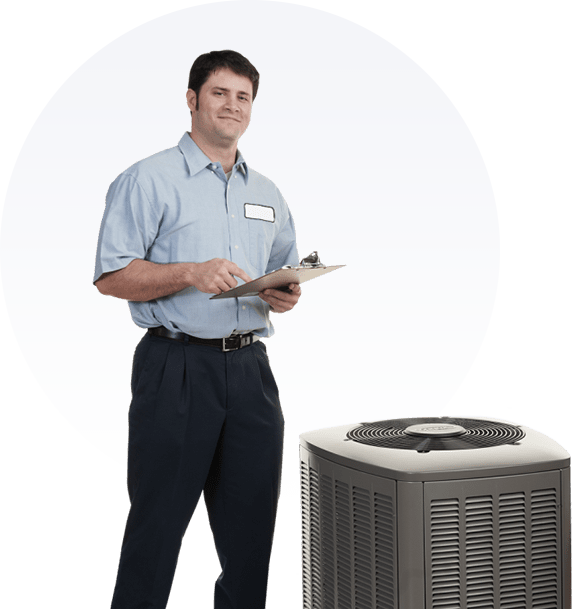Owning a home can be a nuisance. On top of the monthly bills, renovations, and maintenance, you need to deal with dreaded repairs. As a homeowner, it's quite likely that you'll encounter your air conditioner leaking water at some point. What starts as a mild inconvenience can destroy ceilings, walls, and floors, not to mention the AC’s performance and efficiency. What’s worse, bio-growth can develop in moisture-ridden areas and pollute the air you breathe. And before you know it, your AC won't turn on or won't cool your house. We’re here to make sure that never happens. Our team at The AC Guy has repaired hundreds of leaky AC's, so we know a thing or two.

How Do I Know If My Air Conditioner Is Leaking Water?
If your AC is leaking water, something is halting its normal cooling cycle. There are signs you can watch for. Notice a puddle around your basement or closet unit, or smell something musty? The water from a leaking attic unit can flood your ceiling and drip down your walls while you’re out. The horror. They are, however, part of The AC Guy new AC unit installation.
Air Conditioner Leaking Water Due To The Damaged Drain Pan
Remember, the drain pan in your AC system catches the condensation on the coils as it drips off. Your drain pan setup will depend on the type of AC unit you have as well as its location. But the purpose remains the same. All systems have a primary drain pan directly underneath the evaporator coil.
Horizontal systems require a secondary drain pan, placed beneath the entire unit (not just the coil) to catch any runaway liquid from an AC dripping water, especially if the unit is in your attic.
Why does water form in my air conditioner?
Your AC’s inside unit contains the evaporator coil (pictured on the right) that cools the warm air blown over it. This causes condensation (moisture) to form on the coil, just like how water droplets form on a glass of cold water on a hot day include:
- Clogged condensate drain line
- Damaged/rusted drain pan
- Broken condensate pump
- Dirty air filter
- Low refrigerant
AC Leaking Water Because Of Clogged Drain Line
As we’ve already discussed, the drain line is connected to the drain pan and carries the condensate (water) from your air conditioner outside. AC air filters – especially poor quality, old, or damaged ones – let dirt and debris find its way into your air conditioning system and accumulate over time. (see our AC freezing up post to learn more). One such area of accumulation could be in the condensate drain line.
If the accumulation of dirt and debris is so bad that it clogs the line, it can flood the drain pan.
AC Unit Leaking Water Due To Failed Condensate Pump
Condensate pumps exist because gravity cannot always carry the water from the drain pan outside. Your air conditioner may be below ground in a basement, or in a town home attic with an elongated condensate line.
In those circumstances, a centrifugal pump is needed to push the water along. Once the condensate from the evaporator coil reaches a certain level in the pump’s tank, it triggers the float switch, and the pump is activated.
Again, if the tank or tubing for the condensate pump cracks because of long term usage, the water will escape and drip or pool around your AC unit.
Is Your Air Conditioner Leaking Water Inside? What To Do Now?
If your AC leak is due to a frozen coil, try these quick fixes:
- Defrost your evaporator coil by turning the fan on while the AC is still off. This will blow warm air over the ice and speed up the thawing.
- Change your air filters. Notice any dirt or grime? Don’t second guess yourself; simply chuck and replace.
- Check your air vents. Go around your house and look for anything that may be blocking air flow into the return vent. If you can, check to make sure there are no obstructions inside the vents.
How Do I Stop My AC From Dripping Water In The Future?
One of the highest priorities on your maintenance to-do list is swapping your old, dirty air filters with new (correctly sized) ones (see our blog on changing air filters).
Have professional maintenance done on your AC system in the spring, prior to the strenuous summer season. This can help you avoid most AC repair problems.
The HVAC pro should check your drain pan for cracks or rust and apply treatment to keep algae from growing. They should flush the drain line and check that the condensate pump works, among other things.




 281-419-8035
281-419-8035